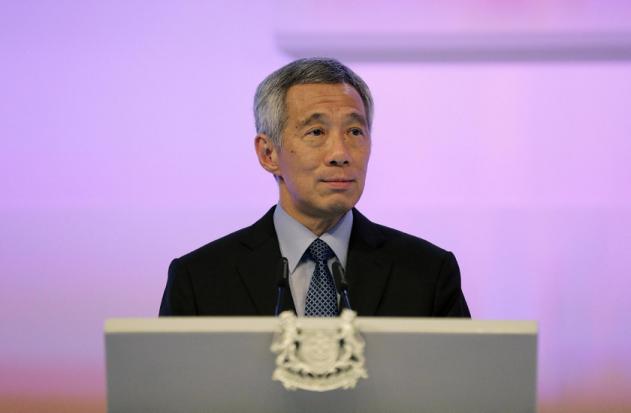THE FILIPINOS’ favorite quote from the late Lee Kuan Yew remains: “What a country needs to develop is discipline more than democracy.”
Singapore supposedly traded its freedoms for strong governance and economic progress, while post-Edsa Philippines was built on the opposite choice. Judging from its first elections without founding prime minister LKY last Friday, the evolved Singapore has both discipline and democracy. Our aimless banana republic still has neither.
I was walking by Singapore’s riverfront noon last Tuesday when Prime Minister Lee Hsien Loong, LKY’s son, spoke at an election rally. The stage was a stone’s throw away from Singapore’s old post office square, where LKY often spoke from the 1950s to the 1980s.
I was stunned. The folksier junior Lee spoke for an hour about healthcare and pension policy, financial management, housing affordability and the parties’ track records, plus jokes about his Facebook likes. Even more stunning, the crowd listened intently.
It was heart-wrenching to see a leader from another Southeast Asian country exude statesmanship and intellect in a rally because we never see a Philippine leader talk about actual policies (not in a rally at least). Three days later, Lee’s People’s Action Party (PAP) decisively beat the budding opposition, winning 70 percent of votes nationwide and all but one of the main electoral districts—the opposition bailiwick where the
opposition won with only 50.95 percent. Pundits explain that in the 2011 elections, the opposition pounded on disenchantment over numerous (by Singapore standards!) subway breakdowns, overcrowding due to liberal immigration and the worryingly high cost of living. However, the PAP silently responded with new programs, down to pictures at each subway station of engineers doing night work on tracks, and made competence the headline issue for 2015.
What I saw on Facebook and Channel News Asia was completely alien. Rallies became the new rock concerts, except that entertainers were legally banned. Speeches, which all discussed policies, were publicly rated. The beloved Deputy Prime Minister and Minister of Finance Tharman Shanmugaratnam gave professorial critiques of how fiscally irresponsible the opposition proposals were. He was cheered the way we would Manny Pacquiao.
Shanmugaratnam is a senior adviser to the International Monetary Fund and has degrees from Harvard, Cambridge and the London School of Economics. The opposing Worker’s Party (WP) has Chen Show Mao, who led multibillion Chinese IPOs while in a top international law firm and he has degrees from Harvard, Oxford and Stanford. Taxi drivers in Singapore can recite these credentials, yet they would be scoffed at in the Philippines. The WP’s young face was 32-year-old Cambridge-educated He Ting Ru, also from a top international law firm. She could never be a serious Philippine candidate unless she was a scion of a political dynasty.
Most heart-wrenching of all was watching my friends become politically empowered. A Harvard-educated Silicon Valley returnee decided to run as an opposition candidate. A Stanford-educated private equity manager asked me to review her first column for a popular opinion website, and note that Singapore’s alleged state control over media cannot extend to the Internet. The cream of Singapore’s youth volunteered as poll watchers. Everyone publicly dissected the parties’ manifestos. A candidate who practically told his opponent to stay home and take care of her newborn received a near-zero vote.
Finally, Singapore being Singapore, indicative results from ballot sampling were released right when polling stations closed at 8 p.m. All results were available by midnight, except for one district where a recount was conducted due to the tiny margin. This was done by 3 a.m. There was absolutely no doubt about the results’ integrity.
Filipinos grew up taught to poke fun at Singaporeans as brainwashed drones living in an Orwellian police state, who have everything in life except the Philippines’ most prized possession: democracy. We had better review the videos from Channel News Asia because Singaporean democracy after LKY appears far more meaningful than the superficial Philippine version.
LKY himself criticized that the freest press in Southeast Asia has not fully checked corruption. We use our rambunctious US-style free speech mainly to complain about everything else we lack to little effect. In Singapore, Muslim women would never be told to take off their hijabs to “look more Filipino,” and F. Sionil José would be jailed for race-baiting.
Accountability to the majority is a joke. Manila traffic costs billions daily and affects people from all walks of life, yet it will never be an election issue even if it has become so ridiculous that we are now deploying the same commandos we send into jungles to kill terrorists to help manage traffic. The recent Iglesia ni Cristo protests that sent Manila into gridlock are a stark reminder of minorities’ wildly disproportional influence and how Filipinos dance to invisible strings.
We simply do not choose our leaders based on how they will defend our territory from China’s incursions, effect peace in Mindanao, or create employment for 100 million citizens. We would rather judge how they smile on TV and mouth empty platitudes, then go back to AlDub.
Lee Hsien Loong’s most powerful appeal was to vote for leaders who would build a Singapore that could be passed on to the next generation with pride. He cautioned that anyone can get elected by writing checks for his children to pay. Our parents proudly stood at Edsa in 1986, but after seeing Singapore of all countries conduct its elections, we should be ashamed to pass this embarrassment we call democracy to their grandchildren without drastically fixing it.
* * *
React: oscarfranklin.tan@yahoo.com.ph, Twitter @oscarfbtan, facebook.com/OscarFranklinTan.
